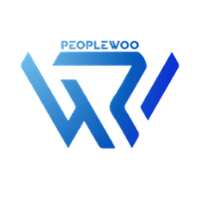
In today’s mobile-first world, engaging users through mobile apps is essential for brands aiming to deliver real-time, personalized experiences. Salesforce Marketing Cloud (SFMC) provides powerful tools to connect with app users through Mobile Studio — specifically, the MobilePush module.
In this blog, you’ll learn how to leverage Salesforce Marketing Cloud to increase mobile app engagement, send relevant push notifications, and build meaningful user relationships through automation and analytics.
What is Mobile App Engagement?
Mobile App Engagement refers to the process of keeping app users active, informed, and connected through meaningful interactions such as push notifications, in-app messages, and personalized offers.
It’s not just about downloads — true engagement means:
- Encouraging repeat visits
- Increasing session duration
- Promoting conversions and retention
- Building long-term brand loyalty
Watch Our Video Tutorial
Mobile Studio and MobilePush Overview
Salesforce Marketing Cloud’s Mobile Studio helps marketers communicate with customers through mobile channels — SMS, push, and chat. Within Mobile Studio, MobilePush specifically enables communication through push notifications and in-app messages for mobile app users.
MobilePush Key Capabilities:
- Send push notifications to Android and iOS users.
- Trigger messages based on app behavior or data changes.
- Leverage Journey Builder for automated engagement flows.
- Personalize notifications with customer data from SFMC.
- Track performance metrics like opens, clicks, and retention.
How MobilePush Works
MobilePush works by linking your app to Salesforce Marketing Cloud through an SDK (Software Development Kit). This SDK allows you to collect device data, manage subscriptions, and send personalized push notifications.
- SDK Integration: Add the MobilePush SDK to your iOS and Android apps.
- App Registration: Register your app within SFMC and connect it to your business unit.
- Subscriber Identification: Use CRM or app identifiers (like contact key or email) to recognize users.
- Message Creation: Design messages using personalization and dynamic content blocks.
- Automation: Use Journey Builder to send messages automatically based on user behavior.
Types of Mobile App Engagement Messages
| Message Type | Description | Example |
|---|---|---|
| Push Notifications | Messages delivered outside the app to prompt user engagement. | “Your order is shipped! Track now.” |
| In-App Messages | Messages shown while users are active inside your app. | “Enjoying our app? Rate us and get 10% off!” |
| Silent Notifications | Background notifications used to refresh data or update app state silently. | Updating loyalty points without alerting the user. |
Real-Life Example
Imagine a retail app that wants to re-engage users who haven’t made a purchase in 30 days. Using Salesforce Marketing Cloud:
- The app identifies inactive users using Data Extensions.
- A Journey Builder flow triggers a push notification: “We miss you! Enjoy 20% off your next purchase.”
- If the user opens the app, they receive an in-app message highlighting new arrivals.
- Engagement data is tracked for future segmentation.
This is a simple but powerful use of data-driven mobile app engagement.
Personalization and Segmentation
SFMC allows deep personalization through data from Data Extensions, Contact Builder, and Interaction Studio. You can segment users by:
- Device type or operating system
- Geolocation
- Purchase history
- App activity or inactivity
- Preferences captured through app interactions
Example: Sending push notifications for nearby store offers based on real-time location.
Tracking and Analytics
MobilePush in SFMC offers detailed analytics to measure performance and refine engagement strategies. You can track metrics like:
- Delivery rate
- Open rate
- Click-through rate (CTR)
- Conversion rate
- Uninstall or opt-out rate
This data helps you understand which notifications drive results and which need improvement.
Best Practices for Mobile App Engagement
- Send notifications at optimal times based on user time zone.
- Personalize every message — avoid generic push alerts.
- Limit frequency to prevent notification fatigue.
- Combine push and in-app messages for better flow.
- Use A/B testing in Journey Builder to optimize results.
Start Your Salesforce Marketing Cloud Career Today
At Peoplewoo Skills, we provide live, expert-led training on Salesforce Marketing Cloud — covering real-world use cases in Mobile Studio, Journey Builder, and Automation Studio. Our step-by-step guidance helps you master SMS, push, and mobile marketing automation.
Why Learn SFMC with Peoplewoo Skills?
- Certified instructors with real industry experience
- Live training with 4 months of access to practice environments
- Certification and interview preparation support
- Capstone projects and real-life use cases
- Beginner-friendly training structure
- Free demo class to help you get started
Frequently Asked Questions (FAQ)
Conclusion
Mobile App Engagement in Salesforce Marketing Cloud enables brands to connect with users in real time, foster loyalty, and drive conversions. With tools like MobilePush and Journey Builder, you can build intelligent campaigns that respond instantly to customer actions.
To gain hands-on experience with Salesforce Marketing Cloud and Mobile Studio, join our Peoplewoo Skills live training or enroll in our Udemy course for complete, practical learning.
More SFMC Resources
Start your SFMC journey today — join our Live Training or learn at your own pace with our Udemy Course.
Need help? Chat with us on WhatsApp anytime.
Learn. Practice. Get Certified. Succeed with Peoplewoo Skills.

